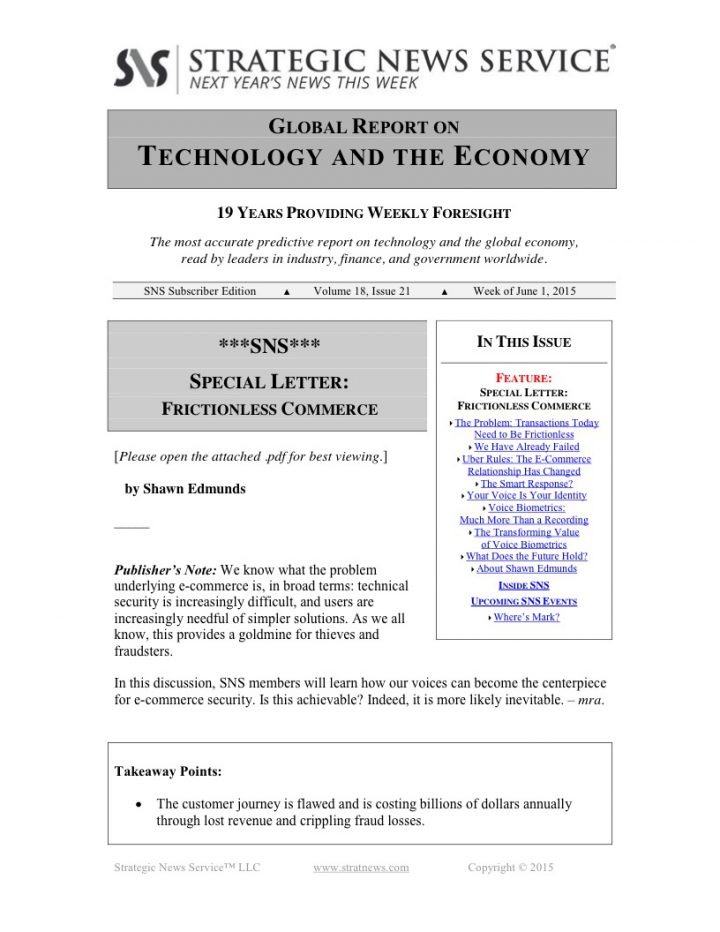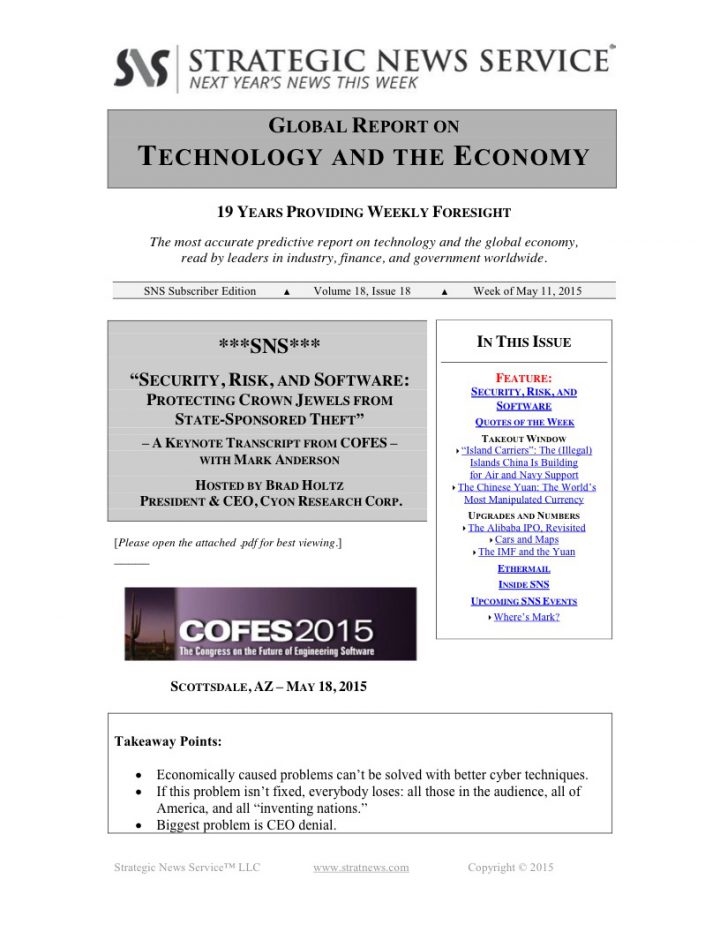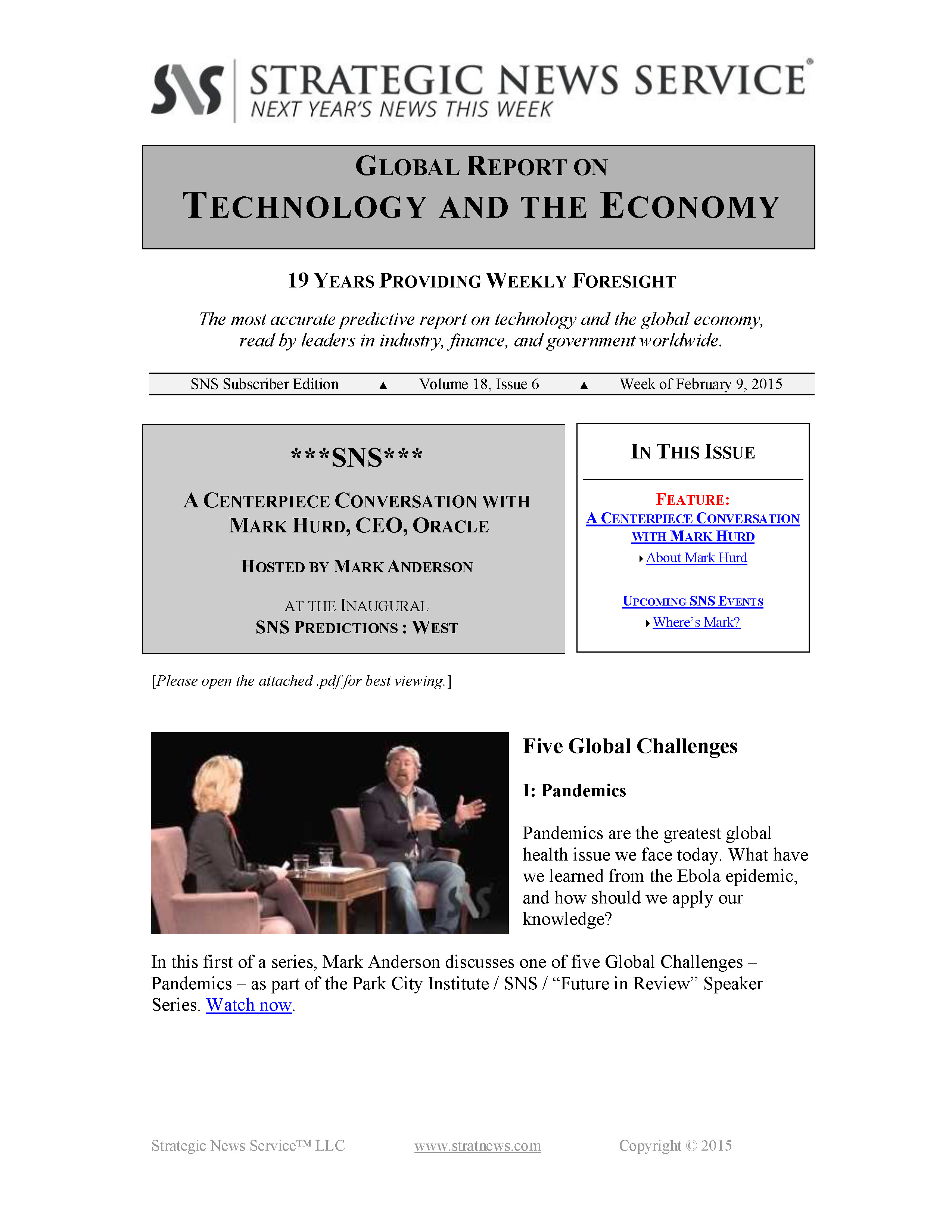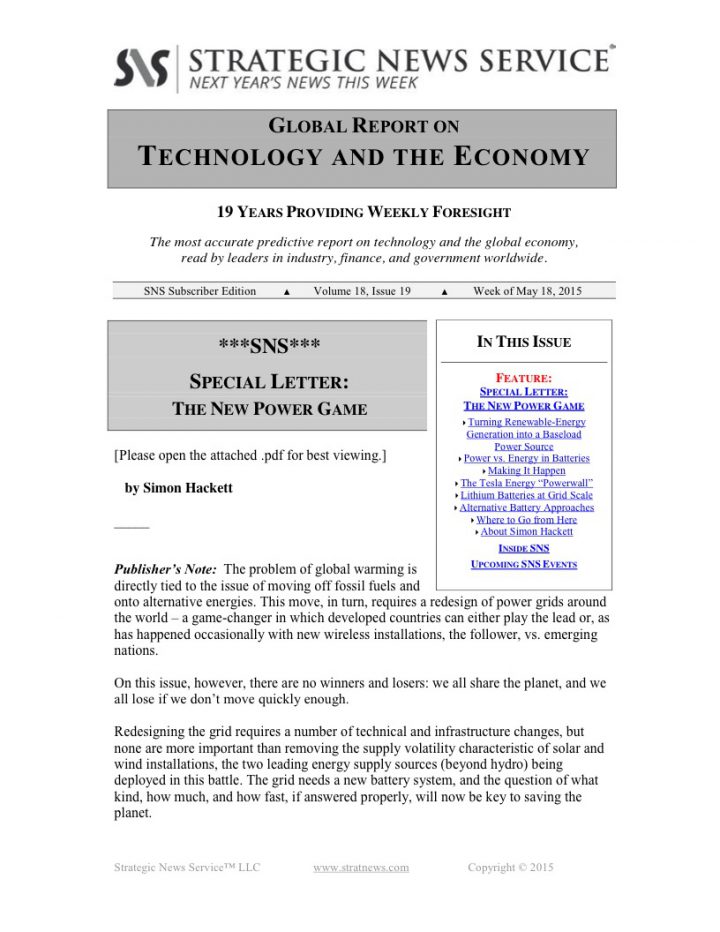In This Issue
Week of 2/18/2019
Vol. 24 Issue 6
SNS: Gene Editing and Medicine
A Conversation with Clayton Lewis and Ben Brown
Moderated by David Ewing Duncan
- About Clayton Lewis
- About Ben Brown
- About David Ewing Duncan
—
Publisher’s Note: If there is a single “north star” around which the constellations of the many revolutions in healthcare rotate today, that star would be the concept of how, at every level, biology tends to organize and act in networks – or, as Ben Brown refers to them below, consortia. Linked directly to this new understanding of the meta-systems of life are the new systems in machine learning which, for the first time, are capable of looking at increasingly complex, higher-order data sets.
For those SNS members who have attended FiRe and heard global leaders such as Leroy Hood, Larry Smarr, Lee Hartwell, and many others talk about this new level of science, this has become one of the most intellectually rewarding and exciting threads in the space between life and computing.
For those of us on the technology side of things, it provides concrete guidance toward new innovations in a plethora of areas, including but not limited to signal processing, compute systems design, message-based protocols, new programming methods, low-energy processing, and a nearly infinite number of other ongoing and future areas of improvement.
For those of us on the bio side of this conversation, it provides almost daily upgrades in the tools we can use to understand life in ever more complete ways – not just the genome, metabolome, proteome, or microbiome, but also how these act and signal together.
There is little in the technology universe more exciting than the lessons we are gleaning from biology, and little in the bio universe more exciting than the new discoveries we are finding with the help of machine learning.
In this week’s discussion, members will have a chance to get a critical update from global leaders on both sides of this productive conversation, and no doubt will find their own sources of inspiration for creating next-generation ideas and products. – mra
______
GENE EDITING AND MEDICINE
A Conversation with Clayton Lewis, CEO, Arivale;
and Ben Brown, Dept. Head, Molecular Ecosystems Biology, and Chair, Environmental Bioinformatics, Lawrence Berkeley National Laboratory
Moderated by David Ewing Duncan, Author and Co-Founding CEO, Arc Programs
FiRe 2018 Conference
Wednesday, October 10, 2018 ( Stein Eriksen Deer Valley ( Park City, Utah
______
David Ewing Duncan: We’re going to do a little bit of a deep dive, inasmuch as we have a few minutes to do that, in molecular space, targeted therapeutics, gene editing – things like that – and kind of walk you through a little bit of that.
We are missing, unfortunately, one of our panelists: John Mattison, who’s an old friend of mine. He’s a physician who works a lot with data at Kaiser, and he was going to give us a little bit of a physician’s, or a clinician’s, point of view. But I think we’re going to have a lot of fun here over the next few minutes and learn a lot about what’s happening in this really exploding space.
As a journalist, I’ve been covering genetics … I first got sequenced in 2001; actually, I was one of the early people to do that. It’s taken a while – these things always do – but we’re at a period right now that’s quite exciting. In fact, I want to reframe the panel topic just a little bit.
I like to talk about health. I mean, medicine is what happens – at least when you have medical treatments – when you’re not as healthy as you would like to be.
But this space is really as much about keeping you healthy now. I call it “radical wellness,” using massive amounts of data. And it also only starts with genetics. In fact, in a talk I give I have a slide that says “Genetics is so … yesterday.” It’s not that it’s not important; it’s just that it got so much attention for so long, when in fact, it’s all about what you call “multi-omics.” You’ve heard a little bit about that in the previous talk – the Connectome [Project] is actually even part of that. There’s the metabolome, the microbiome, even the epigenome … all these different networks and pathways and types of molecular health pathways.
So, we’re going to talk a little bit about all that, but I’d like our panelists to each take a couple minutes to tell us what you all are up to. We’ll start with Clayton Lewis.
….
Additional information
| Topics |
|---|
SKU: SNS-2019-02-21 - Need Help? Contact Us Leave Feedback
Categories: 2019 Issues, Back Issues
Tag: PDF Download





